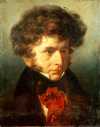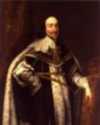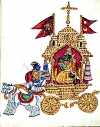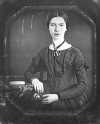 Berlioz was a French Romantic composer. He studied music in Paris against his parents’ wishes, and his first great score, Symphonie fantastique, became a landmark of the Romantic era. An impassioned and contentious critic, he was constantly at war with the musical establishment. Although he was the most compelling French musical figure of his time, his distinctive compositional style kept almost all his music out of the repertory until the mid-20th century. What are his most famous works? Discuss
Berlioz was a French Romantic composer. He studied music in Paris against his parents’ wishes, and his first great score, Symphonie fantastique, became a landmark of the Romantic era. An impassioned and contentious critic, he was constantly at war with the musical establishment. Although he was the most compelling French musical figure of his time, his distinctive compositional style kept almost all his music out of the repertory until the mid-20th century. What are his most famous works? Discuss
Source: The Free Dictionary
 The English Civil War, which began in 1642, consisted of a series of conflicts between Parliamentarians and the Royalist supporters of King Charles I and, later, King Charles II. Ending with Parliamentary victory in 1651, the conflicts left England, Scotland, and Ireland without a monarch. After the execution of Charles I and the exile of Charles II, the monarchy was replaced with a republican commonwealth government led by Oliver Cromwell. When was Charles II restored to the throne?
The English Civil War, which began in 1642, consisted of a series of conflicts between Parliamentarians and the Royalist supporters of King Charles I and, later, King Charles II. Ending with Parliamentary victory in 1651, the conflicts left England, Scotland, and Ireland without a monarch. After the execution of Charles I and the exile of Charles II, the monarchy was replaced with a republican commonwealth government led by Oliver Cromwell. When was Charles II restored to the throne?  Drafted by a committee chaired by Eleanor Roosevelt, the Universal Declaration of Human Rights is the world’s most translated document. Among its 30 articles are definitions of civil and political rights, as well as definitions of economic, social, and cultural rights—all of which are owed by UN member states to those under their jurisdiction. Since its adoption, it has acquired more juridical status than originally intended and has been widely used, even by national courts, in what ways?
Drafted by a committee chaired by Eleanor Roosevelt, the Universal Declaration of Human Rights is the world’s most translated document. Among its 30 articles are definitions of civil and political rights, as well as definitions of economic, social, and cultural rights—all of which are owed by UN member states to those under their jurisdiction. Since its adoption, it has acquired more juridical status than originally intended and has been widely used, even by national courts, in what ways?  The birthday of the
The birthday of the  Dickinson is widely considered one of the greatest American poets. After attending Amherst Academy and Mount Holyoke Seminary, she returned to her family home and spent the rest of her life there, writing. By 1860, she was boldly experimenting with language. Few of her poems were published in her lifetime, but after her death, her cache of poems was discovered, and heavily edited collections were published starting in 1890. It was not until what year that an unaltered collection was published?
Dickinson is widely considered one of the greatest American poets. After attending Amherst Academy and Mount Holyoke Seminary, she returned to her family home and spent the rest of her life there, writing. By 1860, she was boldly experimenting with language. Few of her poems were published in her lifetime, but after her death, her cache of poems was discovered, and heavily edited collections were published starting in 1890. It was not until what year that an unaltered collection was published?  Nestor Makhno was an anarcho-communist Ukrainian revolutionary who refused to align with the Bolsheviks after the October Revolution in 1917. The enormous social experiment in anarchism that he helped create in Ukraine, first by driving out opposing armies and then by organizing the new anarchist system, was cut short by the Bolsheviks in 1921, when he was finally forced into exile. What anarchist work co-written by Makhno remains both influential and controversial today?
Nestor Makhno was an anarcho-communist Ukrainian revolutionary who refused to align with the Bolsheviks after the October Revolution in 1917. The enormous social experiment in anarchism that he helped create in Ukraine, first by driving out opposing armies and then by organizing the new anarchist system, was cut short by the Bolsheviks in 1921, when he was finally forced into exile. What anarchist work co-written by Makhno remains both influential and controversial today?